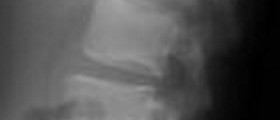
Introduction to chronic sinus infections
These types of infections usually occur after a person has already had some kind of a nasal infection, which was probably the result of a common cold virus.
However, when a person gets better, the nasal infection goes away, but not in the case of the people who have chronic sinus infections.
This results when the infection takes very long to cure and there is poor drainage because of the less than perfect ventilation of the sinuses.
People who suffer from this chronic condition often have problems in damp weather and in places where there are a lot of pollutants in the air and molds flying around. SymptomsNasal congestion is the primary symptom of chronic sinus infections and it can be caused by many different things, especially allergies to foods, bacteria, pollens, fungus or other foreign matters.
It can also be caused by a change in the anatomy of the nose, for example, when a person suffers an injury or a broken nose.
Another common symptom is nasal discharge, which is usually the worst in the morning.
People with a chronic sinus infection will usually have a constant cough as well, though it will usually not be productive, but dry instead.
Blocked ears are another problem that occurs. The mucus that is produced in the sinus area blocks the Eustachian tubes. It is important to treat this condition on time so that it does not result in a serious ear infection.
People with chronic sinus infections can also experience pain in the teeth, especially the molars of the upper jaws. The pain can be fairly severe, like when a tooth is infected.
A person who suffers from this chronic condition can also experience pain in the forehead and cheeks as well. These pains result from sinus pressure and are caused by mucus that is not drained from the area.
It is not rare that a person loses their sense of smell as well, because of the sinus infection.
It is also very common that the person will have puffy eyes in the morning and they can also suffer regularly from a fever and a sore throat.Treatment
Chronic sinus infections are either treated through medications or with surgery in the worst case scenario.
It is best to take narrow-spectrum antibiotics because they are usually less expensive, however, if the antibiotics are not having any effect on the sinus infection, then the person might have to switch to broad-spectrum antibiotics.
A doctor may also recommend antihistamines and corticosteroids in order to clear up the symptoms and inflammation.
When none of this medication works, then surgery can be used to change the abnormalities in the nasal passages that could be the root of the problem A deviated septum is a very common problem that needs to be corrected surgically in order for the sinuses to clear up.

















Your thoughts on this
Loading...